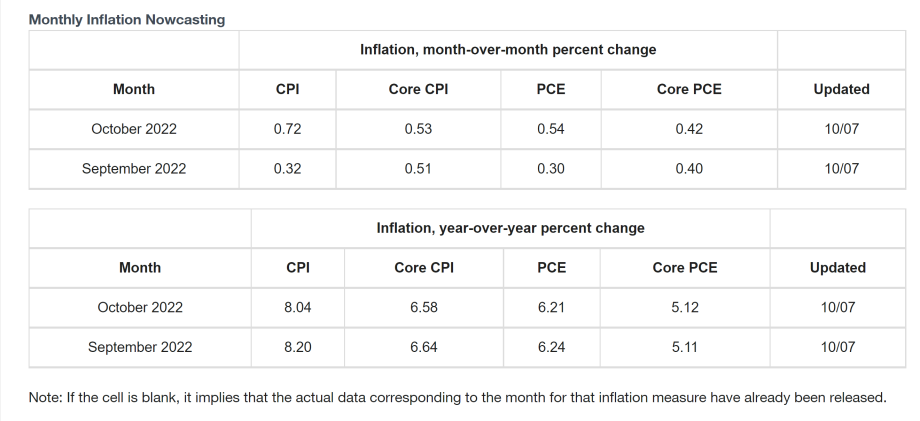Fed is locked into raising rates much higher don't listen to their spin

Video section is only available for
PREMIUM MEMBERS
The jobs report for September showed a decrease in monthly gains, with 263,000 new jobs added last month, a decline from the prior month in which 315,000 new jobs were added. However, the spin of these numbers by the Federal Reserve as well as members of the press is that last week’s jobs report indicated Strong employment figures which sent stocks tumbling. It also led to more concerns that the future monetary policy tightening will continue and lead to a recession as the Federal Reserve fights inflation.
While market participants are waiting for the latest inflation data economists are currently forecasting that the report is likely to indicate that prices remain elevated in the world’s largest economy which would keep causing the Federal Reserve to continue its aggressive monetary policy at least until next year. Currently, the consensus is that September inflation will remain hot at 8.1% year on year in September which is slightly lower than August’s report at 8.3%. The forecasts are also indicating that they expect to see core inflation rising from 6.3% to 6.5% in September. According to crowd Wisdom, Our Forecast for US Inflation in September is 8.1% to 8.4%. The average estimate from other forecasters so far is 8.1%.
That being said, Fed members continue to spin a doctrine in which they can raise interest rates aggressively without it leading to an economic recession.
As reported by Reuters, “Chicago Fed President Charles Evans on Monday said inflation is much more persistent than the U.S. central bank initially thought. But he noted that the Fed may still be able to lower inflation without a sharp rise in unemployment and without pushing the economy into a recession.”
The fact that Federal Reserve members along with many members of the press are spinning Friday’s jobs report as a report showing continued strength in the labor market even though it was the number of jobs added was the lowest since 2020 is interesting, to say the least.
However, some economists questioned the spin on the latest jobs report such as Karl Schamotta, chief market strategist at Ccrepay in Toronto. He refuted the mainstream doctrine by saying, "By illustrating continued strength in the labor market, Friday's non-farm payrolls report gave the Fed carte blanche to continue raising rates,”
He also added that the minutes from the last FOMC meeting, "are likely to show policymakers remain willing to inflict serious economic pain on the U.S. and global economies as they try to bring down inflation."
The bottom line is that the likelihood of a 75-basis point rate hike in November remains elevated at 78.4%. Realized that the Federal Reserve is not waiting on data from the CPI report on Thursday. This is because the Federal Reserve bank of Cleveland is using a modeling system using current data today data called “Inflation Nowcasting”.
This advanced modeling system using real-time data today data is predicting much higher inflation than economists are forecasting. Below are the latest numbers from the Federal Reserve Bank of Cleveland.
Based on this data from the Federal Reserve Bank of Cleveland it seems likely that increases will be larger or extended into 2023. So when Federal Reserve members such as “Chicago Fed President Charles Evans want the public to believe that they can lower inflation without causing massive pain and a recession it is most likely he is just trying to calm the public and the information he has suggested otherwise.
Higher interest rates will hurt gold prices and put them under pressure until the Federal Reserve begins a process of easing the rate at which it raises rates. At the same time, there are some wildcards such as the current geopolitical unrest with Russia’s invasion of Ukraine and North Korea’s blatantly launching a ballistic missile over Japan.
There is also going to be a tipping point if the Federal Reserve continues to raise rates and high inflation remains ingrained and persistent. That shift in market perception would make gold a favored primary hard asset.
Wishing you as always good trading and good health,

Gary S. Wagner - Executive Producer
